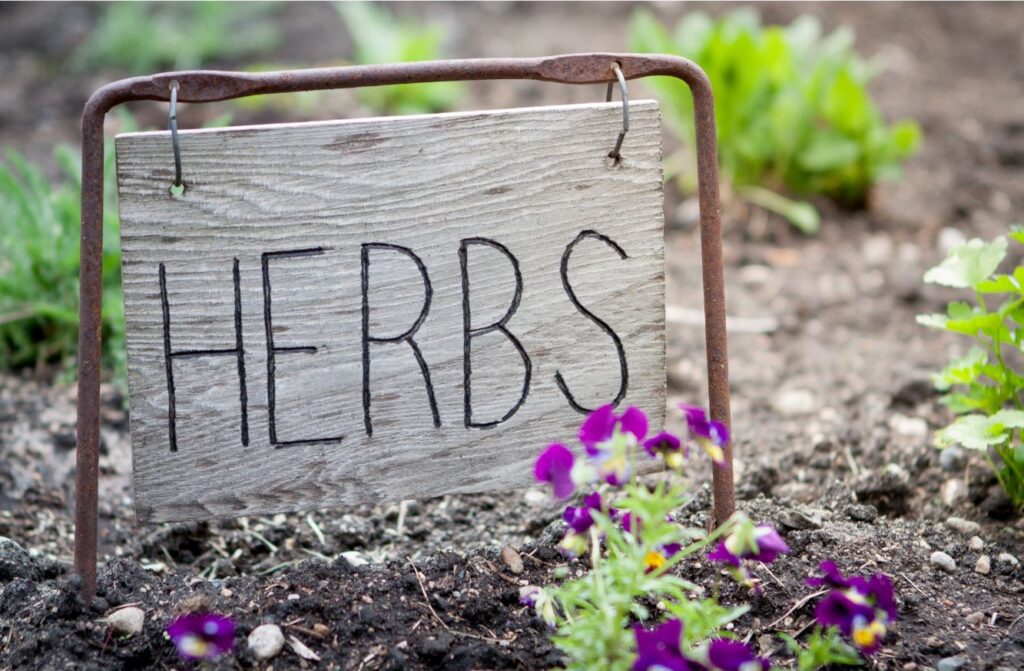
In the world of cooking, herbs are the unsung heroes that transform ordinary dishes into extraordinary culinary experiences. Growing your own herb garden is a simple yet powerful way to elevate your cooking, enrich your health, and bring a touch of nature into your home. Whether you have a sprawling backyard, a few beds in your back yard, a small terrace or a sunny windowsill, cultivating an herb garden offers numerous benefits that make it a worthwhile endeavor. Here’s why having an herb garden has been a game-changer for our kitchen and beyond.
Unmatched Freshness and Flavor
There’s a world of difference between dried herbs from a jar and freshly picked herbs from your garden. Fresh herbs have a vibrant flavor and aroma that can dramatically enhance the taste of your dishes. Snipping a sprig of basil or a few leaves of mint just before cooking ensures you’re getting the freshest, most potent flavor possible.
Nutritional Benefits
Herbs are packed with vitamins, minerals, and antioxidants that contribute to a healthy diet. For example, parsley is rich in vitamins A, C, and K, while basil offers anti-inflammatory properties. Using fresh herbs in your cooking can boost the nutritional value of your meals, providing essential nutrients that support overall health.
Cost Savings
Purchasing fresh herbs from the store can be expensive, especially if you use them frequently. Growing your own herb garden is a cost-effective alternative that provides a continuous supply of your favorite herbs. A small initial investment in seeds or seedlings can yield an abundant harvest, saving you money in the long run.
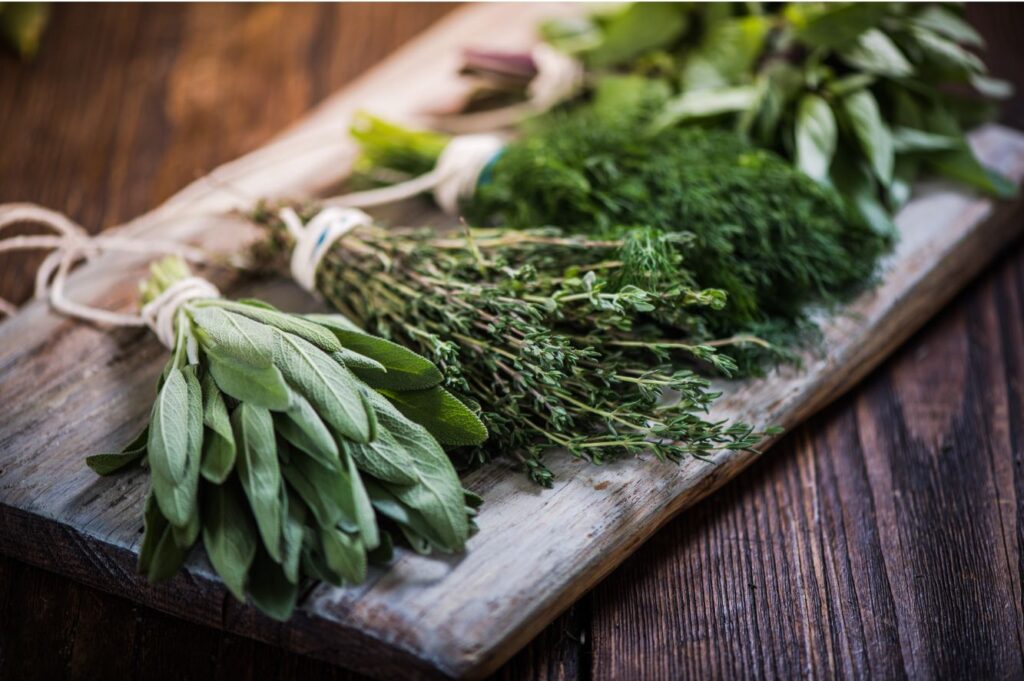
Convenience and Accessibility
Having an herb garden close to your kitchen means we have had easy access to fresh herbs whenever we need them. This convenience encourages us to use herbs more often, experimenting with new flavors and recipes. There’s no need for last-minute trips to the store—your herbs are always just a few steps away.
Sustainability
Growing your own herbs is an environmentally friendly choice. It reduces the need for plastic packaging and transportation associated with store-bought herbs. Additionally, by using organic gardening practices, you can grow herbs without harmful pesticides or chemicals, promoting a healthier ecosystem, most importantly healthier for your family. What is most important to our family is that we do not need to rely on others- when we grow our own food we rely on ourselves to provide what we need!
Educational and Therapeutic Benefits
Gardening has been so wonderful for me and our girls to learn about plant growth cycles, what we can grow best in our area and sustainable living. It’s also a therapeutic activity that can reduce stress, improve mood, and provide a sense of accomplishment. The act of nurturing plants and watching them grow can be incredibly rewarding and grounding. Our girls have thoroughly enjoyed every aspect from planting the seeds to watching them sprout and grow to provide for us. They love helping them grow with watering and harvesting too!
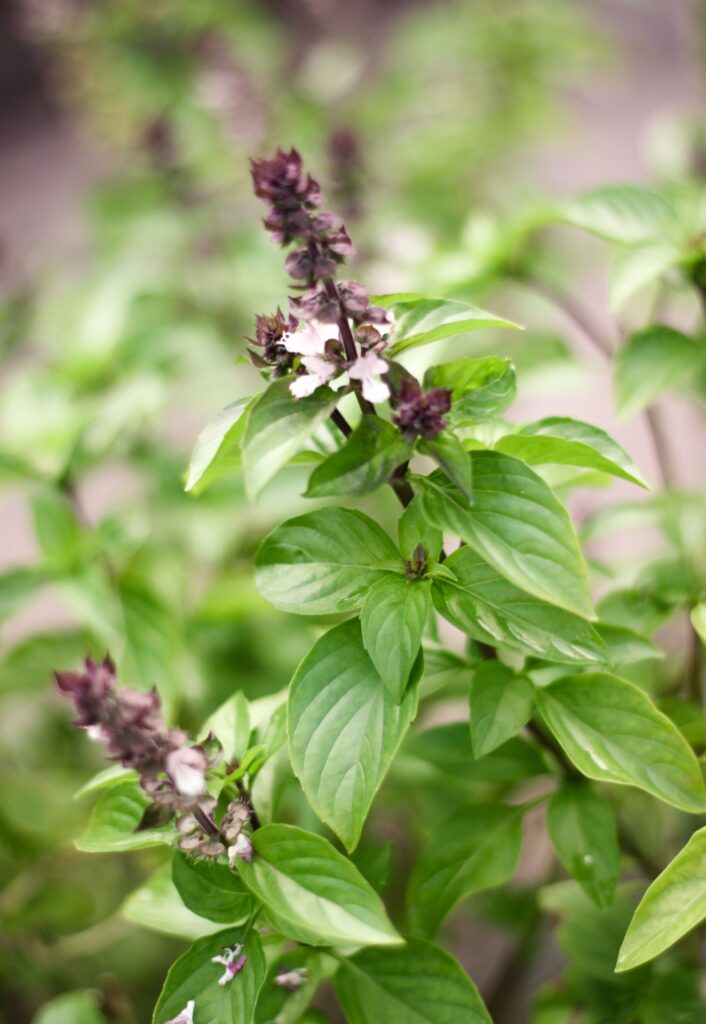
Aesthetic Appeal
Gardening also provides indescribable beauty to be enjoyed by all! An herb garden adds beauty and greenery to your living space. Whether you plant herbs in a garden bed, containers, or window boxes, they can enhance the visual appeal of your home. Many herbs, such as lavender and rosemary, also produce lovely flowers, adding to their decorative value, and help feed the Bees!
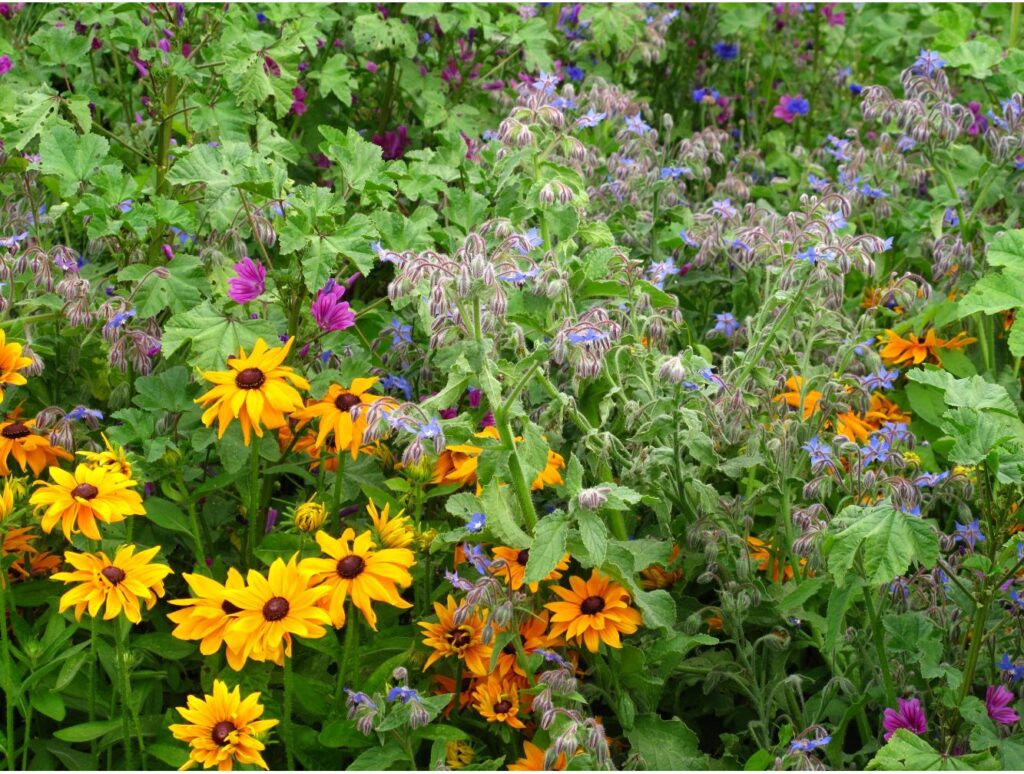
Easy-to-Grow Herbs for Your Garden
Here are some herbs that we found are easy to grow and versatile in the kitchen:
Basil- Essential for Italian cuisine, basil is perfect for pesto, salads, and pasta dishes.
Parsley- A versatile herb that adds a fresh, slightly peppery flavor to a variety of dishes.
Mint- Great for teas, desserts, and adding a refreshing touch to salads and drinks.
Rosemary- A hardy herb with a robust flavor, ideal for roasted meats, vegetables, and bread (Focaccia is perfect).
Thyme- An aromatic herb that pairs well with poultry, soups, and stews.
Cilantro- Popular in Mexican and Asian cuisine, cilantro adds a bright, citrusy flavor to salsas, curries, and salads.
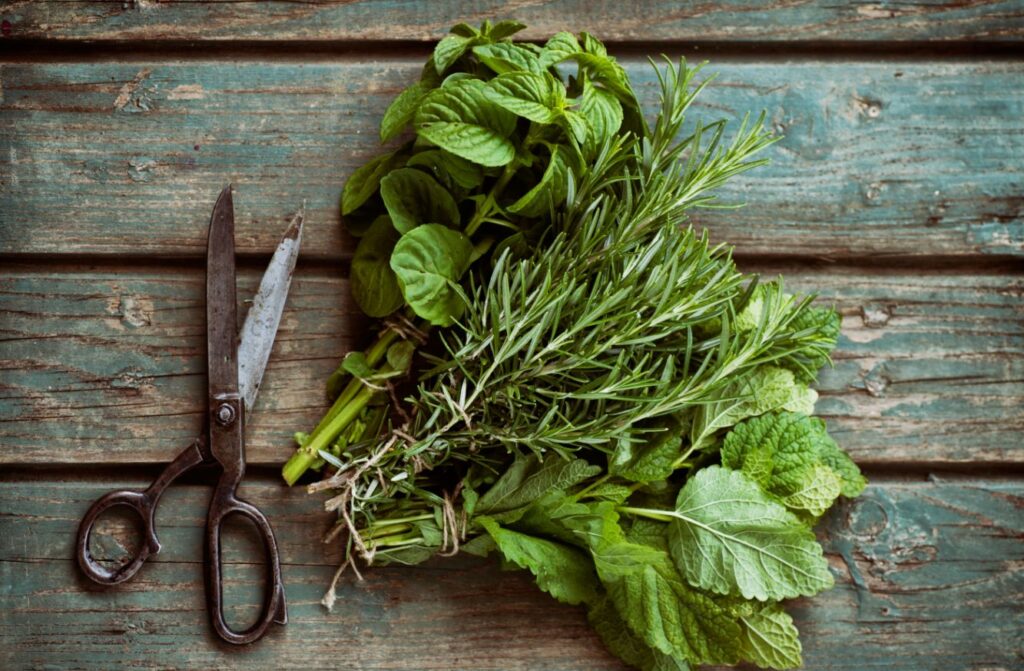
Tips for Starting Your Herb Garden
-Choose the Right Location- Herbs generally prefer a sunny spot with at least 6 hours of sunlight per day. A kitchen windowsill, balcony, or garden bed can be ideal.
Use Quality Soil- Plant herbs in well-draining soil rich in organic matter. If using containers, ensure they have drainage holes to prevent waterlogging.
Water Wisely- Most herbs prefer consistent moisture but not soggy soil. Water them when the top inch of soil feels dry.
Harvest Regularly- Regular harvesting encourages new growth and prevents herbs from becoming leggy. Cut just above a leaf pair to promote bushier growth.
Fertilize Sparingly- Herbs don’t need heavy feeding. A light application of compost or a balanced, organic fertilizer every few weeks is usually sufficient.
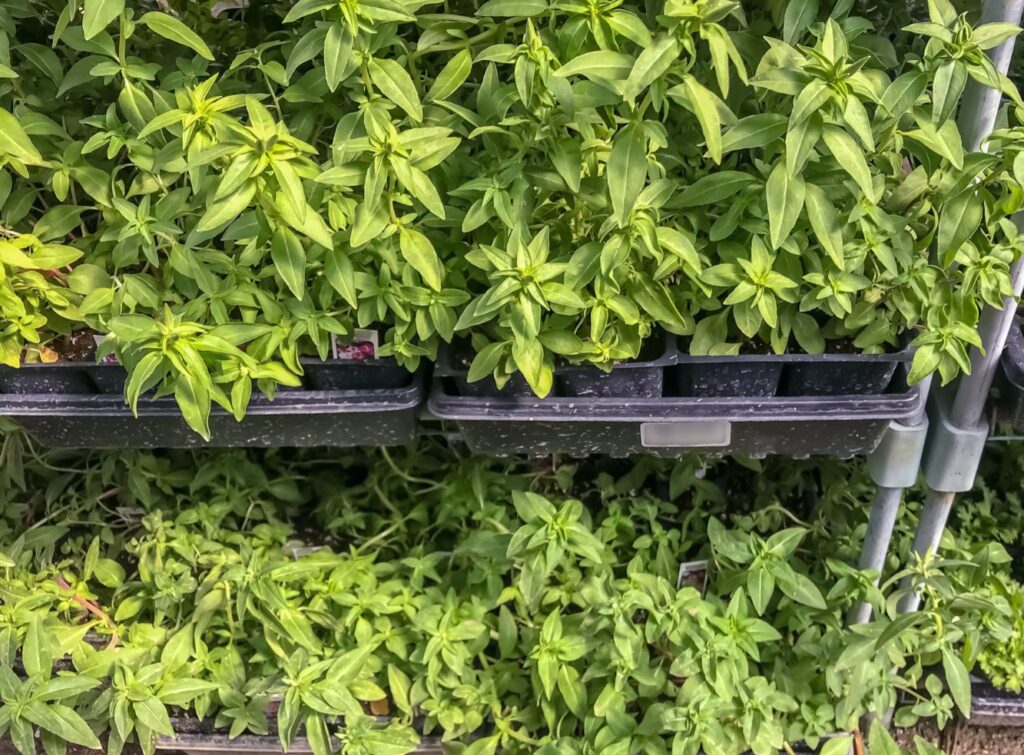
Growing an herb garden has been a delightful and practical way to enhance your culinary repertoire. The benefits extend beyond the kitchen, offering nutritional, financial, environmental, and emotional rewards. Whether you’re a seasoned gardener or a novice learning with your kids, starting an herb garden is a manageable and gratifying project. So, gather your seeds or seedlings, find a sunny spot, and begin your journey towards fresher, more flavorful cooking. Your taste buds—and your wallet—will thank you.
Happy gardening!
Here Are a Couple Delicious Recipes Using Fresh Herbs
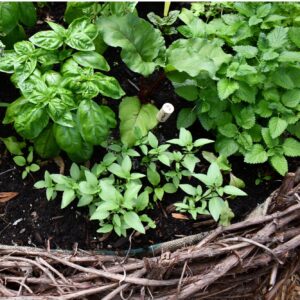
Classic Pesto
Equipment
- Blender
Ingredients
- Basil
- Pine Nuts
- Parmesan Cheese
- Olive Oil
- Salt
- Pepper
Instructions
- Blend basil, garlic, and pine nuts. Gradually add olive oil until smooth. Stir in Parmesan, salt, and pepper to taste.
Notes

Minty Cucumber Salad
Ingredients
- Cucumbers
- Red Onion
- Mint – Chopped
- Olive Oil
- Lemon Juice
- Salt
- Pepper
Instructions
- Slice cucumbers and red onion. Toss with chopped mint, olive oil, lemon juice, salt, and pepper.
** This post may contain affiliate links, which means I make a small commission at no extra cost to you**